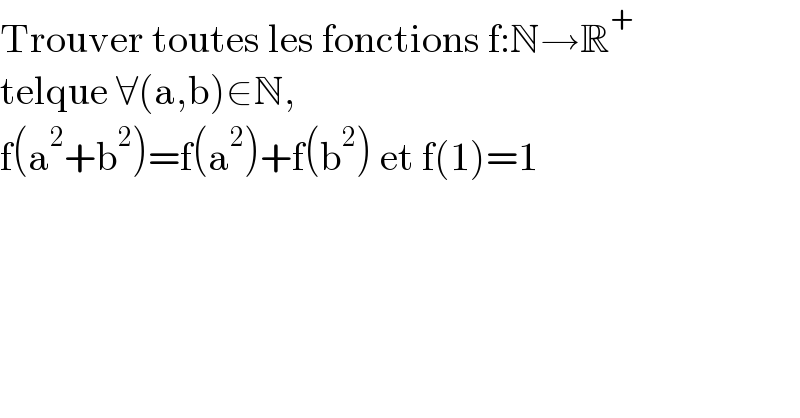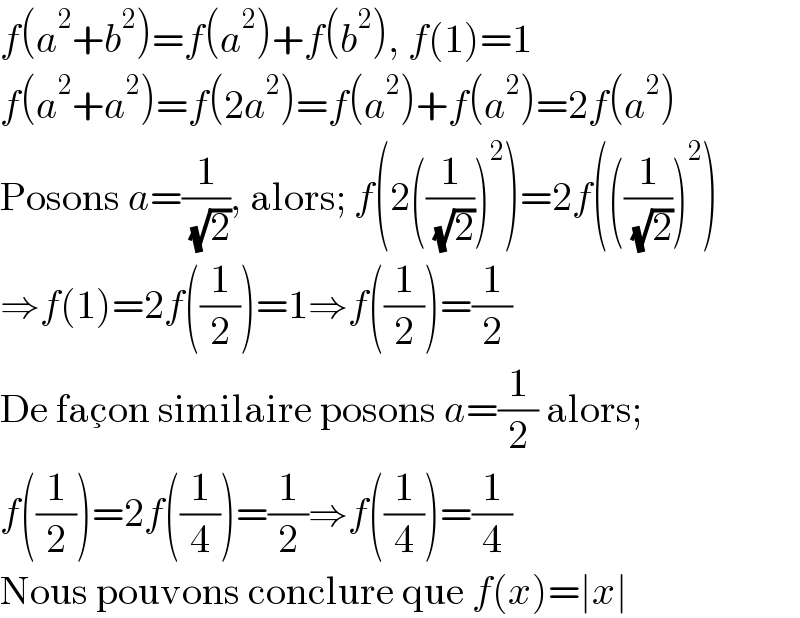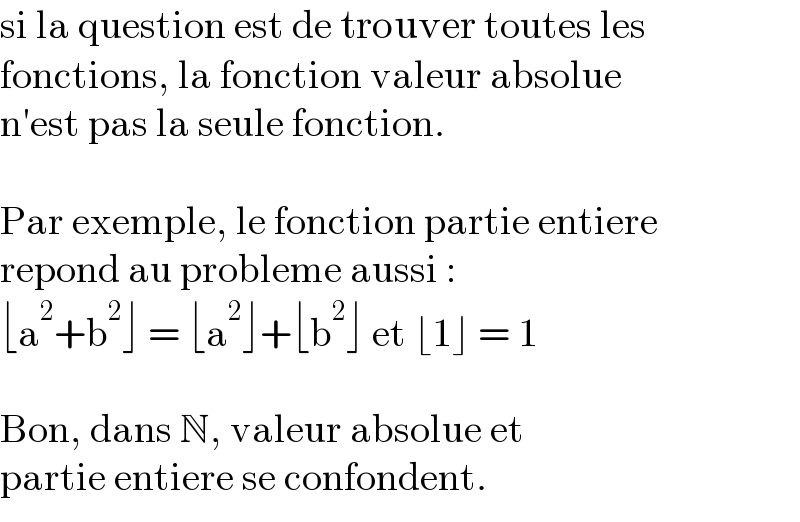
Question and Answers Forum
Question Number 149634 by puissant last updated on 06/Aug/21

Answered by Ar Brandon last updated on 06/Aug/21

Commented by puissant last updated on 06/Aug/21

Commented by Ar Brandon last updated on 06/Aug/21
Je t'en prie��
Commented by Olaf_Thorendsen last updated on 06/Aug/21

Commented by Ar Brandon last updated on 06/Aug/21

Commented by puissant last updated on 07/Aug/21

